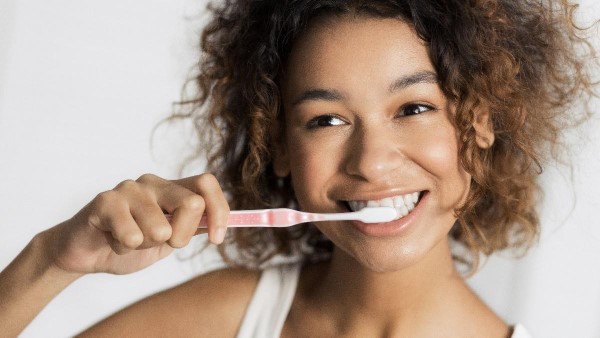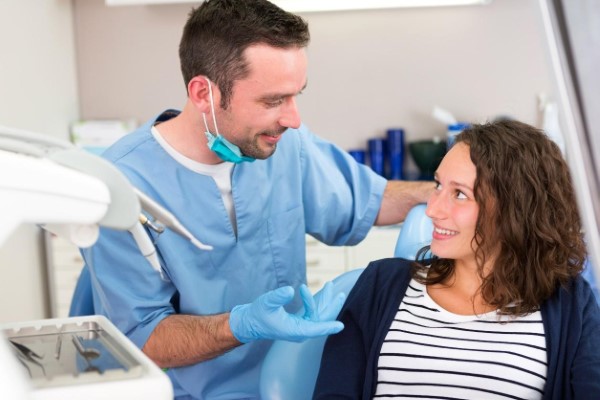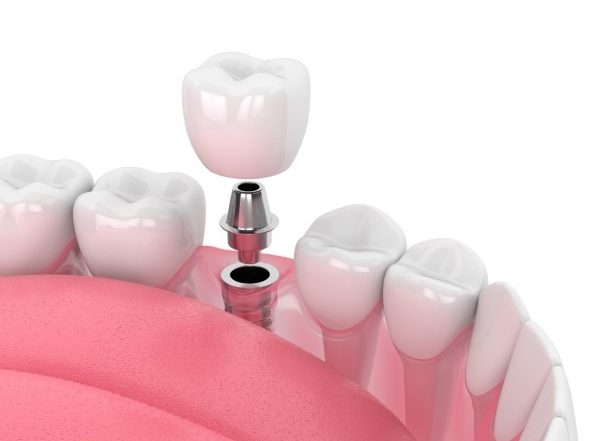Sometimes our eyes are feeling very heavy at the end of a long day, and we crawl into bed without thoroughly brushing or flossing our teeth. On some mornings our alarms don’t sound until way later than we thought, and we have to eat our breakfast while running out the door, our toothbrush left dry and unused. These things happen, and it may not seem like a big deal at first. What’s one or two missed brushings?
The continued neglect of your dental hygiene can actually put you at high risk for tooth decay, which eventually worsens and turns into one or more cavities. While cavities are inevitable in some cases, there are many steps you can take to lower your risk of developing them. These steps, tips and tricks are listed below!
- Make a Commitment to Your Oral Hygiene Routine

For optimal teeth and gum health, you’re supposed to brush your teeth a minimum of twice per day, with floss and mouthwash integrated into this routine. Ideally, you’ll want to brush your teeth with the best possible products for the best results – if possible, try to avoid off-brand products when it comes to your oral health!
It’s also recommended that you brush your teeth thoroughly before going to sleep. This is because saliva production decreases at night while you sleep, therefore your mouth isn’t being kept clean or fresh until morning. Saliva helps to rid of any remaining food particles, and if it is not being produced at a normal rate, this can allow bacteria to build up quickly. It’s best to take care of your mouth before retiring for the day!
In short, make sure you’re not brushing less than twice daily, and that you’re incorporating dental floss at least once per day! Mouthwash or, if it’s unavailable, drinking lots of water in between meals before you are able to access a toothbrush can also work wonders for your oral health.
- Improve or Make Upgrades to Your Diet

Believe it or not, there are some foods and beverages that have direct oral health benefits! Sometimes it isn’t just about how often you brush or how long you brush for, but what interacts with your teeth before the toothbrush does!
Some foods that are great for tooth and gum health are as follows:
- Sugar Free Gu
- Cheese
- Fresh Vegetables and Fruits
Incorporating more of these items into your diet will help to keep your teeth clean, lowering the likelihood of you getting problematic build up on your teeth.
- Visit the Dentist for Regular Cleanings
The best thing you can do for the prevention of cavities and the maintenance of your oral health is to see the dentist twice yearly!
Sometimes, cavities and tooth decay have no symptoms. You may think that because of this you’re able to skip out on the dentist, but that couldn’t be further from the truth.
Despite having a lack of symptoms, your dentist will be able to tell if there’s any decay or cavities that are living in your mouth undetected. During their semiannual exam, they’ll be able to perform a full examination of your teeth, gums, and jaw, diagnose any current issues, and check for the warning signs of any that may come.
Your dentist is also the only one that can truly remove that stubborn build up on your teeth. Hardened plaque can’t be removed with a toothbrush and floss, and in order to prevent decay or periodontal disease, your dentist will have to remove any top layer of the build-up to ensure it doesn’t develop into a more serious problem.
Regular cleanings will help you to maintain your oral health, and be able to catch and treat any decay or cavities that need to be addressed.
- Swish with or Drink Tap Water
Much of the population prefers the taste and convenience of bottled water these days, but it is lacking one component that tap water has that helps promote oral health; fluoride.
Also found in your toothpaste and mouthwash, the fluoride in the drinking water having topical contact on the teeth can help keep them healthy, and decrease the risk of developing cavities. Many cities in North America add fluoride to the public drinking water, making it easily accessible.
If you’d prefer not to consume tap water, try simply swishing with it a few times a week, as you would with your favorite mouthwash.
- Have a Conversation with Your Dentist, and Know How At-Risk You Are

Having a discussion with your dentist upon the completion of your exam will give you a good idea of how at-risk you are for the development of cavities.
If you brush and floss regularly, are consistent with your check-ups and cleanings, and have yet to notice any indications of tooth decay, you may be at lower risk than others. Your dentist will be able to assess all of this and have an open conversation with you about what, if anything, needs to be done. They will also make helpful recommendations if asked, such as what changes in diet and lifestyle may help you protect yourself from cavities, and help you to maintain your current state of oral health.
If you show early signs of tooth decay, your dentist will lay out your treatment options for you, and then treat your problem areas efficiently and effectively. Communication and observance is key!
- Replace Acidic and Sugary Drinks with Water
While you don’t have to cut them out completely, drinks such as dark coffees and teas, sodas and juices can be extremely harmful to your teeth.

If you simply can’t forget about your morning cup of coffee, try having a toothbrush on hand in order to clean your teeth before anything has a chance to settle on and stick to the surface. If you’re in a pinch with no toothbrush or mouthwash around, rinsing thoroughly with water will get the job done until you can brush!
Consuming your coffee, sodas, and other sugary drinks through a straw can also help to minimize topical contact with your teeth. Every little preventative method helps!
The main concern with these extra sugary and acidic drinks is that they not only build up on your teeth to cause cavities, but the excess sugar leaches into your saliva and remains for long periods of time.
Water should be your go-to choice when it comes to quenching your thirst! With no extra calories or sugar, this is truly the beverage of choice for maintaining optimal dental hygiene and oral health.



